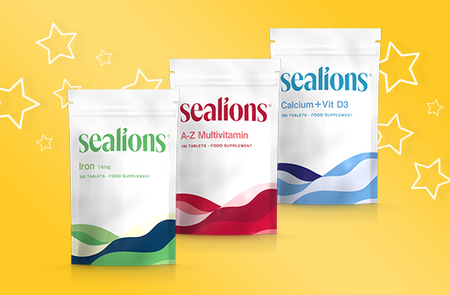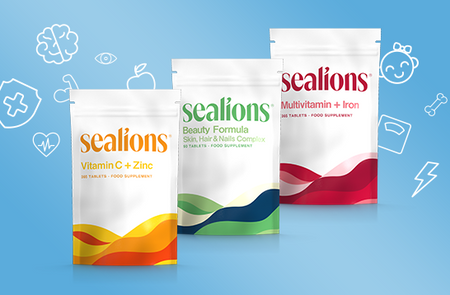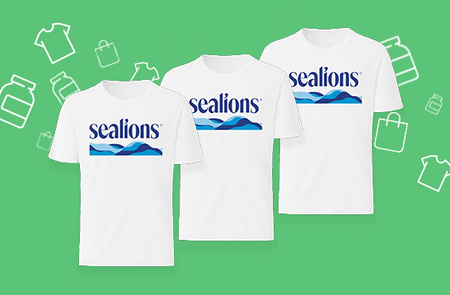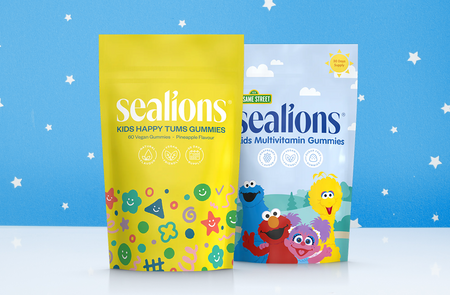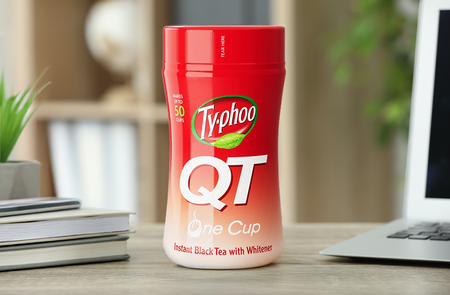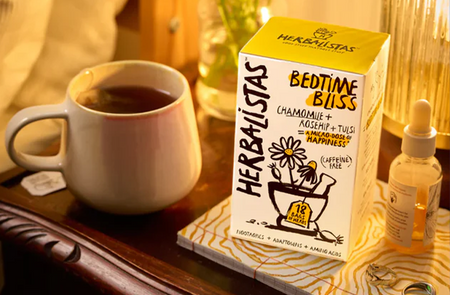
Hay Fever Relief: Natural Remedies and Prevention Tips
Spring and summer leaves a lot of us sneezing, sniffling, and rubbing our eyes. Hay fever is a common reaction to pollen that tends to peak between the months March and September - Especially in Spring when plants are in full bloom. The over-the-counter antihistamines we’re used to can offer relief, but there are also some natural ways to ease the irritating symptoms… You might already be doing some of them without even realising it. We’ve put together a list of tips to help you breathe a little easier this Spring.
Quercetin (can be found in foods like apples, onions, and leafy greens)
Quercetin is a more natural remedy for hay fever. It can work by helping to stabilise the cells that release histamine in your body, meaning it can help calm symptoms such as sneezing, itching, and watery eyes. Some studies even suggest that quercetin has anti-inflammatory properties[1].
Vitamin C (can be found in fruits and vegetables like oranges, kiwi, and bell peppers)
It’s no secret that Vitamin C is great for boosting our immune systems, but what may not be more widely known is that it can help calm hay fever symptoms. Similar to Quercetin, Vitamin C can act as a natural antihistamine[2], helping to reduce the amount of histamine your body produces when it reacts to pollen. The less histamine, the less we sneeze and/or have congestion. If you find yourself not getting enough Vitamin C in your diet, you can also take a supplement and introduce this into your daily routine.
Omega 3 Fatty Acids (can be found in oily fish like salmon or plant-based sources such as flaxseeds or walnuts)
Omega-3 fatty acids are not only good for supporting heart and brain health, but they can also help during hay fever season. These natural, healthy fats help reduce inflammation in the body, which can make allergic symptoms[3] (such as congestion) more manageable. While you can introduce Omega-3 naturally by enjoying Omega-3 rich foods, you can also take supplements instead.
Spirulina (can be found in green powder blends or supplements)
Spirulina is a nutrient packed algae that is now recognised as being a ‘superfood’. It is suggested that spirulina can help balance the immune system and reduce inflammation[4], which can help ease hay fever symptoms such as sneezing and nasal congestion. You can often find spirulina in green powder blends that can be added to smoothies or foods. You can take it as a standalone supplement if you prefer.
There are a couple of other natural ways to further ease your hay fever symptoms. Saline nasal rinses are very popular, and can help clear the pollen from your nasal passages - which is the cause of congestion and irritation. If you do choose to use this method, make sure to follow the instructions carefully and use sterilised water. Another method involves a higher cost investment - an air purifier. Air purifiers filter out pollen and other airborne allergens, keeping the air in your home cleaner and more breathable. These are also great for people who already have respiratory issues such as asthma[5].
[1] Li Y, Yao J, Han C, Yang J, Chaudhry MT, Wang S, Liu H, Yin Y. Quercetin, Inflammation and Immunity. Nutrients. 2016 Mar 15;8(3):167. doi: 10.3390/nu8030167. PMID: 26999194; PMCID: PMC4808895.
[2] Ghalibaf MHE, Kianian F, Beigoli S, Behrouz S, Marefati N, Boskabady M, Boskabady MH. The effects of vitamin C on respiratory, allergic and immunological diseases: an experimental and clinical-based review. Inflammopharmacology. 2023 Apr;31(2):653-672. doi: 10.1007/s10787-023-01169-1. Epub 2023 Feb 27. PMID: 36849854; PMCID: PMC9970132
[3] Lemoine S CM, Brigham EP, Woo H, Hanson CK, McCormack MC, Koch A, Putcha N, Hansel NN. Omega-3 fatty acid intake and prevalent respiratory symptoms among U.S. adults with COPD. BMC Pulm Med. 2019 May 21;19(1):97. doi: 10.1186/s12890-019-0852-4. PMID: 31122230; PMCID: PMC6533751.
[4] Calella P, Cerullo G, Di Dio M, Liguori F, Di Onofrio V, Gallè F, Liguori G. Antioxidant, anti-inflammatory and immunomodulatory effects of spirulina in exercise and sport: A systematic review. Front Nutr. 2022 Dec 14;9:1048258. doi: 10.3389/fnut.2022.1048258. PMID: 36590230; PMCID: PMC9795056.
[5] Fong WCG, Kadalayil L, Lowther S, Grevatt S, Potter S, Tidbury T, Bennett K, Larsson M, Nicolas F, Kurukulaaratchy R, Arshad SH. The efficacy of the Dyson air purifier on asthma control: A single-center, investigator-led, randomized, double-blind, placebo-controlled trial. Ann Allergy Asthma Immunol. 2023 Feb;130(2):199-205.e2. doi: 10.1016/j.anai.2022.10.010. Epub 2022 Oct 23. PMID: 36288782.
Tagged:

